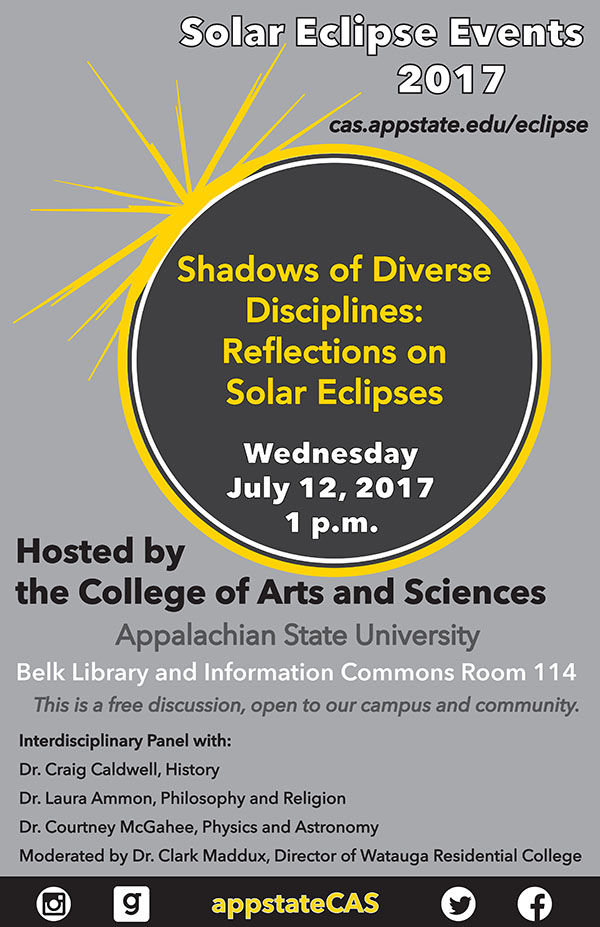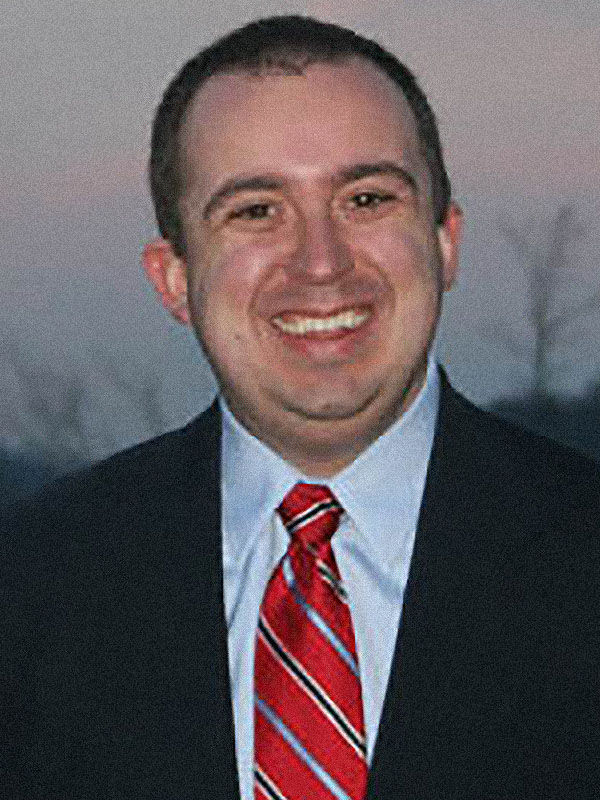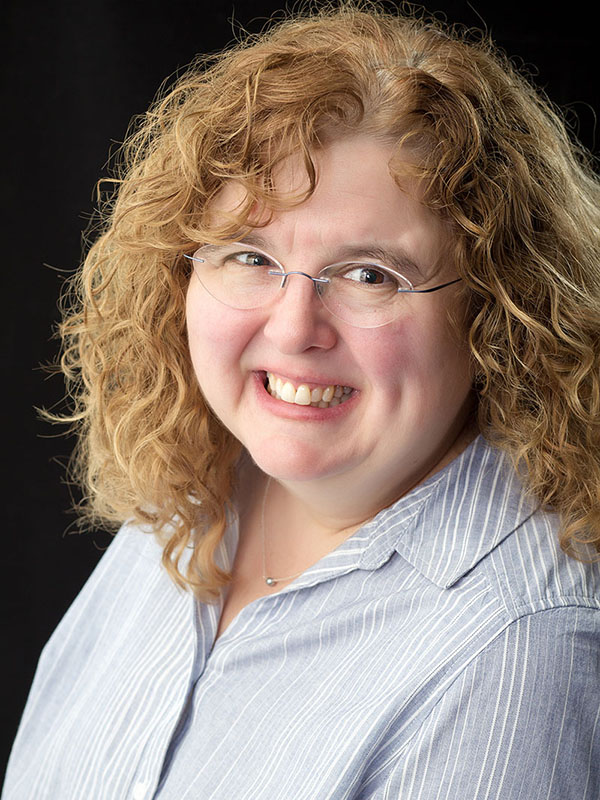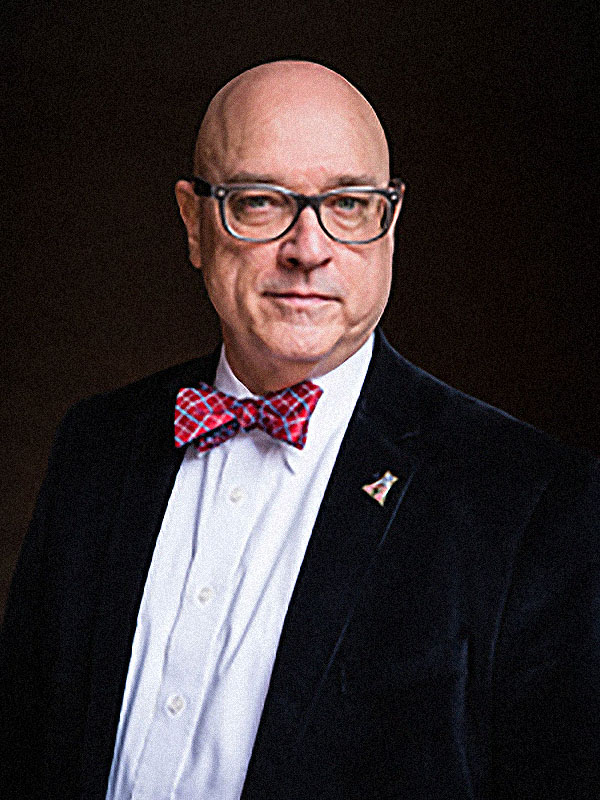BOONE, N.C.—As anticipation builds with the solar eclipse approaching this August, the College of Arts and Sciences at Appalachian State University will hold a panel discussion to examine the many interpretations of these events in history, from scientific to religious, and discuss the significance of an eclipse through the variety of disciplines that comprise the college.
“Shadows of Diverse Disciplines: Reflections on Solar Eclipses,” an interdisciplinary panel discussion, will take place on Wednesday, July 12, at 1 p.m. in Belk Library and Information Commons, Room 114.
Panelists
The panel will include Dr. Craig Caldwell, Department of History at Appalachian, Dr. Laura Ammon, Department of Philosophy and Religion, and Dr. Courtney McGahee, Department of Physics and Astronomy. It will be moderated by Dr. Clark Maddux, director of Watauga Residential College.
The goal of this panel, leading up to the actual solar event, will be to discuss how the different disciplines view and interpret eclipses through distinctions and commonalities. This event is free and open to the campus and community. For more about upcoming solar eclipse events on and off campus, visit http://cas.appstate.edu/eclipse.
About the Solar Eclipse
On August 21, 2017, a solar eclipse will occur over the United States. A total solar eclipse happens when the moon completely covers the sun in the sky, blocking its light and allowing the sun’s outer atmosphere to become viewable. Stars and planets can be visible on a clear day, appearing just like the night sky. Outside the path of a total eclipse, sky watchers around the continental United States will still see a partial eclipse, in which the moon appears to cover a portion of the sun, but the sky will not darken completely.
The path of the total eclipse will be 70 miles wide, and as it traverses the United States, it will stretch from Oregon to South Carolina. The timing of the total solar eclipse and its duration will depend on where the viewer is located in the path of totality. At most, the moon will completely cover the disk of the sun for two minutes and 40 seconds, but the entire event may take up to four hours.
Anyone planning to view the eclipse should wear solar viewing glasses. This protective eyewear makes it possible for viewers to look directly at the sun before and after the totality. Regular sunglasses cannot be used! Looking directly at the sun, even when it is partially covered by the moon can cause serious eye damage. The only time it is safe to take the protective eyewear off, is during the few minutes of totality, when the sun is completely covered by the moon.
About the College of Arts and Sciences
The College of Arts and Sciences is home to 16 academic departments, two stand-alone academic programs, two centers and one residential college. These units span the humanities and the social, mathematical and natural sciences. The College of Arts and Sciences aims to develop a distinctive identity built upon our university’s strengths, traditions and unique location. Our values lie not only in service to the university and local community, but through inspiring, training, educating and sustaining the development of our students as global citizens. There are approximately 5,850 student majors in the college. As the college is also largely responsible for implementing Appalachian’s general education curriculum, it is heavily involved in the education of all students at the university, including those pursuing majors in other colleges. Learn more at http://cas.appstate.edu
About Appalachian State University
As a premier public institution, Appalachian State University prepares students to lead purposeful lives. App State is one of 17 campuses in the University of North Carolina System, with a national reputation for innovative teaching and opening access to a high-quality, cost-effective education. The university enrolls more than 21,000 students, has a low student-to-faculty ratio and offers more than 150 undergraduate and 80 graduate majors at its Boone and Hickory campuses and through App State Online. Learn more at https://www.appstate.edu.
What do you think?
Share your feedback on this story.
















